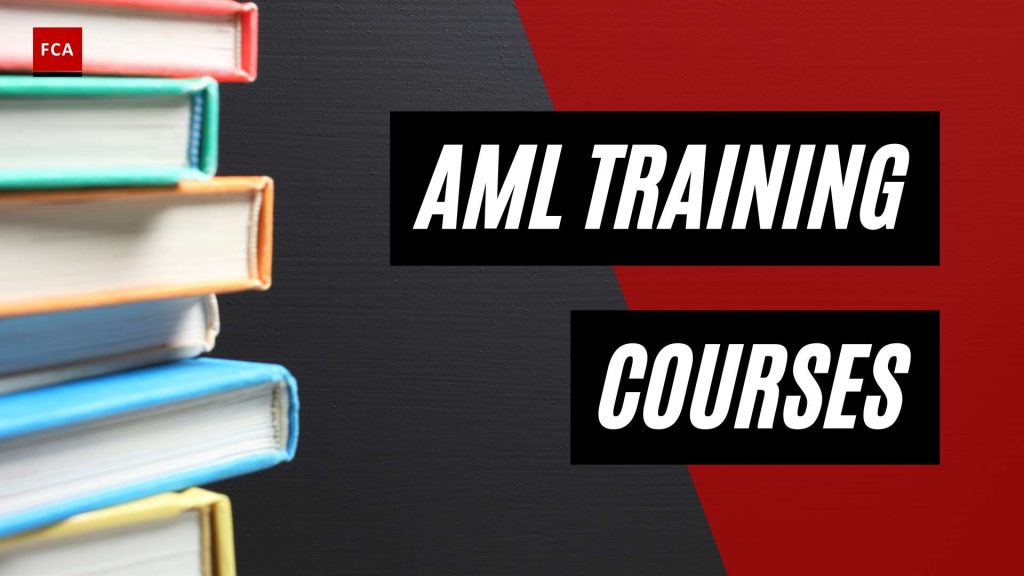Importance of AML Training
In an era marked by rising financial crimes, the importance of anti-money laundering, abbreviated as AML, cannot be overstated. Professionals in the financial industry are increasingly recognizing the need for specialized AML training courses to combat these crimes effectively. This section will delve into the role of AML in financial institutions and the laws and regulations surrounding it.
Role of AML in Financial Institutions
Anti-money laundering plays a crucial role in maintaining the integrity of financial institutions. AML targets a variety of crimes, including tax fraud, corruption, and illicit trade, and it helps prevent criminals from funneling illegal funds into financial systems, thereby reducing crime and illicit activities.
Financial institutions need to implement a Know Your Customer (KYC) program as part of their AML process. This program focuses on gathering data related to products and services, transaction types, geographical locations, and the status of high-risk individuals during customer onboarding and reassessing them when new relevant information is learned (Flagright).
Given the rising threat of financial crimes globally, there is an increasing demand for AML specialists with advanced skills. AML training courses are designed to empower professionals with the knowledge and skills needed to detect and prevent these financial crimes, including money laundering and terrorist financing. To learn more about the training requirements, you can refer to our guide on aml training requirements.
AML Laws and Regulations
The inception of AML procedures traces back to the implementation of the Bank Secrecy Act (BSA) in the United States in 1970, marking the first anti-money laundering legislation. The BSA aimed to identify and prevent money laundering, and it has since been strengthened by new anti-money laundering regulations (Dumpsgate).
On a global scale, the Financial Action Task Force (FATF), established in 1989, plays a significant role in setting AML standards. The FATF was created to develop and promote anti-money laundering prevention standards worldwide (Dumpsgate).
Understanding these laws and regulations is a key component of AML training courses. This knowledge is critical for compliance officers, risk management professionals, and anyone responsible for implementing AML protocols at their institution. Successful completion of an AML training course often results in an AML certification, which testifies to an individual’s expertise in the field and their ability to combat financial crimes effectively.
By comprehending the role of AML in financial institutions and the laws and regulations that govern it, professionals can better equip themselves to safeguard their institutions against financial crimes. This, in turn, contributes to the integrity and security of the global financial system.
Fundamental Aspects of AML Training
AML training courses are essential for professionals involved in compliance, risk management, anti-money laundering, and anti-financial crime. They aim to provide the knowledge and skills needed to detect and prevent financial crimes, including money laundering and terrorist financing. Let’s delve into the key aspects of AML training, including understanding money laundering techniques and identifying suspicious transactions.
Understanding Money Laundering Techniques
One of the fundamental components of AML training is understanding money laundering techniques. AML training courses cover a broad range of topics, including customer due diligence, transaction monitoring, reporting requirements, and the latest anti-money laundering techniques.
Understanding how money laundering works is crucial to detecting and preventing it. This involves learning about various money laundering schemes, from basic methods to more complex and sophisticated techniques. By understanding these techniques, professionals can better identify potential red flags and take appropriate action to prevent money laundering activities.
Identifying Suspicious Transactions
Another crucial aspect of AML training is learning to identify suspicious transactions. This involves understanding patterns of behavior that may indicate money laundering or other forms of financial crime. AML training courses cover risk assessment, customer due diligence, suspicious activity reporting, and transaction monitoring.
Identifying suspicious transactions is not always straightforward, as money launderers often employ complex techniques to hide their activities. However, through comprehensive AML training, professionals can learn to recognize the signs of suspicious behavior and understand when and how to report it.
AML training courses are structured to cater to different levels of expertise, from beginner to advanced, providing practical tools and skills to combat financial crime effectively. Whether you’re a new entrant in the field or an experienced professional, AML training can significantly enhance your ability to detect and prevent financial crimes.
For more resources on AML training, you can check out our AML training materials and AML training videos. If you’re an accountant, we also offer specialized AML training for accountants.
Financial Crime Academy
The Financial Crime Academy provides robust anti-money laundering training courses to help individuals and organizations gain a deeper understanding of AML and counter-terrorist financing (CTF) regulations and practices.
Their AML training courses empower professionals with the knowledge and skills needed to detect and prevent financial crimes, including money laundering and terrorist financing. By imbibing such critical skills, professionals can contribute significantly towards making their respective organizations more robust against financial threats. For detailed content on what these courses may cover, check out our aml training materials page.
Features of AML Training Courses
The effectiveness of any AML program relies heavily on the quality of the training provided. Comprehensive and up-to-date AML training courses are essential for strengthening an organization’s defenses against financial crimes. This section details the structure, topics, and certification aspects of AML training courses.
Course Structure and Topics
AML training courses typically cover a wide range of topics to provide a comprehensive overview of anti-money laundering and counter-terrorist financing practices.
Similarly, courses offered by the Financial Crime Academy encompass a broad spectrum of topics, including customer due diligence, suspicious activity reporting, and transaction monitoring Financial Crime Academy.
Certification and Recognition
Earning a certificate from a reputable AML training course can highlight one’s commitment to AML education and excellence in compliance practices.
Acquiring certification is not just a testament to the individual’s knowledge and dedication but also adds value to the organization by ensuring that their AML compliance program is managed by certified professionals. To explore more about AML certifications, visit our page on aml training certification.
Having the right training and certification is crucial for professionals in compliance, risk management, and anti-financial crime to protect their organizations from financial crime risks and comply with AML laws. For more information on how to meet these requirements, check out our guide on aml training requirements.
Benefits of Online AML Training
Online AML training courses offer several advantages that set them apart from traditional classroom-based programs. Here we discuss two key benefits: flexibility and convenience, and the ability to stay current with AML requirements.
Flexibility and Convenience
One significant benefit of online AML training courses is the flexibility and convenience they offer. These courses allow participants to learn at their own pace and on their own schedule, making them particularly advantageous for busy professionals. This flexibility ensures that learners can gain a comprehensive understanding of AML principles without disrupting their work commitments.
Financial Crime Academy enhances comprehension and retention of AML concepts through an interactive learning environment that fosters collaboration with instructors and peers. The inclusion of case studies and assessments ensures that learners can apply the knowledge gained effectively in real-world scenarios, fostering a practical understanding of AML principles and techniques. For more information, visit our comprehensive guide on aml training online.
Staying Current with AML Requirements
Online AML training courses also enable individuals to stay current with AML requirements. The dynamic nature of financial crimes, coupled with evolving regulations and compliance requirements, underscores the need for continuous learning. Online AML training courses provide a platform for professionals to keep their knowledge up-to-date and ensure their organizations remain compliant with AML laws and regulations.
Furthermore, online courses often offer immediate updates and additions to course material, ensuring that participants have access to the most current information. This feature is crucial for professionals working in compliance, risk management, anti-money laundering, and anti-financial crime roles who need to stay abreast of the latest developments in AML laws, regulations, and techniques.
For more details on the importance of staying current with AML requirements, refer to our article on aml training requirements.
In conclusion, online AML training courses offer a flexible and convenient way for professionals to enhance their understanding of AML principles and stay current with AML requirements. These courses provide a comprehensive and practical understanding of AML concepts, making them an invaluable resource for professionals in the field.
AML Compliance and Risk Management
The final puzzle piece of anti-money laundering (AML) training is understanding how to implement effective compliance and risk management strategies. An effective AML compliance program should help your institution expose and prevent financial fraud, money laundering, tax evasion, terrorist financing, and other financial crimes (Flagright). Key components include the detection of suspicious activities, comprehensive policies and procedures, risk assessments, internal practices, and a Know Your Customer (KYC) program.
Implementing a KYC Program
A fundamental aspect of AML compliance is the implementation of a Know Your Customer (KYC) program. Financial institutions are required to assess customer risks during onboarding and reassess them when new relevant information is learned. The KYC program focuses on gathering data related to products and services, transaction types, geographical locations, and the status of high-risk individuals.
A well-executed KYC program can help financial institutions identify and mitigate risks effectively. It forms an integral part of AML compliance training, equipping professionals with the necessary skills to gather and analyze customer data accurately. To stay updated with the latest KYC procedures, consider enrolling in one of our AML training courses.
Regular Monitoring and Audits
In addition to a well-structured KYC program, regular monitoring and audits are essential for effective risk management. Financial institutions should conduct continuous monitoring and testing of their AML compliance programs to stay adaptable and compliant with regulations. Trends should be updated regularly, and annual independent evaluations and testing should be carried out, with reports directly delivered to the CEO, senior management, and the Audit Committee (Flagright).
These audits should ideally be performed every 12-18 months, but a more frequent schedule might be necessary in high-risk areas. The third-party organization performing the audit must be qualified to conduct a risk-based audit specific to the institution.
Regular audits ensure that the AML compliance program is functioning as intended and help identify areas of improvement. They also help in recognizing the effectiveness of the AML training program in equipping employees with the necessary skills and knowledge.
In conclusion, the implementation of a robust KYC program and regular monitoring and audits are essential parts of AML compliance and risk management. Professionals skilled in these areas are highly valued in the financial sector, and AML training certification can provide the necessary validation of these skills. To explore further, check out our AML training materials and AML training videos.








